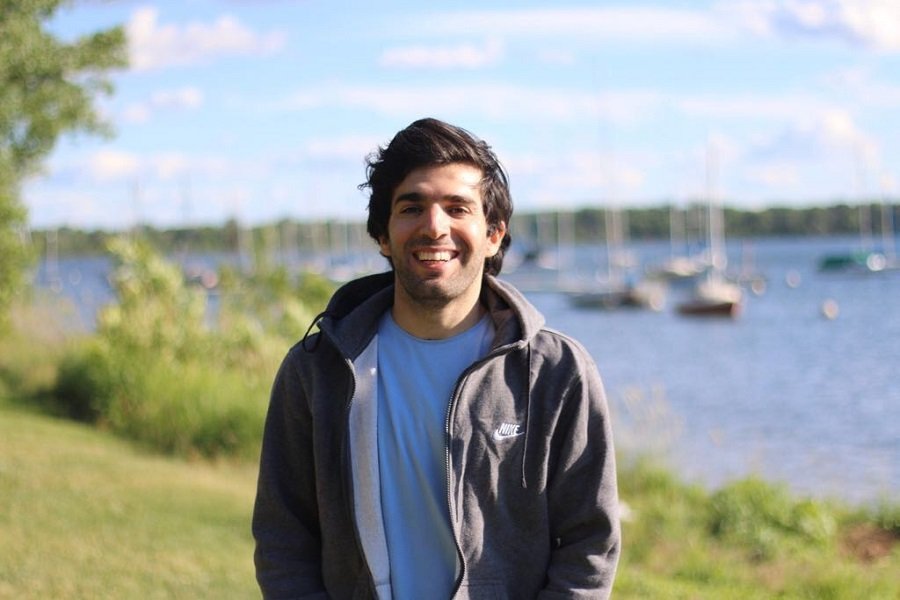Burhaneddin Yaman recognized with best dissertation award

Alumnus Burhaneddin Yaman (Ph.D. 2022) was recently recognized as the winner of the 2023 Best Dissertation Award in the physical sciences and engineering category. His dissertation is titled, “Self-Supervised Physics-Guided Deep Learning for Solving Inverse Problems in Imaging,” and presents a novel artificial intelligence (AI)-based magnetic resonance imaging (MRI) methodology that improves patient comfort by reducing the scan times. Yaman earned his doctoral degree under the guidance of Jim and Sara Anderson Professor Mehmet Akçakaya.
In his dissertation research, Yaman tackled an important issue that has plagued MRI as a diagnostic tool. A widely used non-invasive imaging technique, currently scanning using MRI is a lengthy process that can cause significant patient discomfort and is often an expensive affair. Recognizing these issues, scientists working in the area of imaging have been actively researching techniques that can reduce scan times without compromising scan quality.
Conventional approaches to reducing scan times are limited by issues such as noise amplification and residual artifacts, and deep learning (a more recent approach) requires fully sampled data for its training phase. However, it is not easy to acquire such data because of constraints such as organ movement, signal decay, and lengthy acquisition times. These are challenges that Yaman embraced in his doctoral research which culminated in his development of the self-supervised learning via data undersampling (SSDU) methodology, a pioneering use of AI in MRI reconstruction. His dissertation presents novel frameworks that enable the training of deep learning reconstruction methods in the absence of fully sampled data.
Commending Yaman on his dissertation award, Professor Mehmet Akçakaya says, "Burhan's Ph.D. work was truly pioneering for MRI reconstruction and resolved a critical issue for the application of deep learning methods in many practical imaging scenarios. I am happy and proud to see his work getting the recognition it deserves."
Yaman’s research has gained traction within the medical imaging community and has been widely recognized for its impact on the healthcare sector. Applied to clinical practice at the University’s Center for Magnetic Resonance Research, the technology has shortened scan times by a factor of two in cardiac scans and by a factor of four in neurological scans. The SSDU methodology and research outcomes that have subsequently followed have been patented by the University’s Technology Commercialization office and licensed to a major MRI company. The impact of his work will eventually be widely felt in patient experience and care.
Yaman is the recipient of several other awards including one for Best Paper at the International Symposium on Biomedical Imaging in 2020 (“Self-Supervised Physics-Based Deep Learning MRI Reconstruction Without Fully-Sampled Data”), Summa Cum Laude Merit Award at the International Society for Magnetic Resonance in Medicine (2020), and the Early Career Award Finalist (Basic Science) by the Society for Cardiovascular Magnetic Resonance in 2021. He was also the recipient of a departmental fellowship, an interdisciplinary doctoral fellowship, and the Walter Barnes Lang fellowship (awarded by the Institute for Engineering in Medicine), all at the University of Minnesota.
After earning his doctoral degree in 2022, Yaman continues his research on artificial intelligence where he is currently working on projects related to medical imaging, and computer vision.
The Best Dissertation Award is a recognition, by the Graduate School, of the University's top recent Ph.D. graduates in each of four broad areas: arts & humanities (including history and philosophy), biological and medical sciences, physical sciences and engineering, and social and behavioral sciences and education.